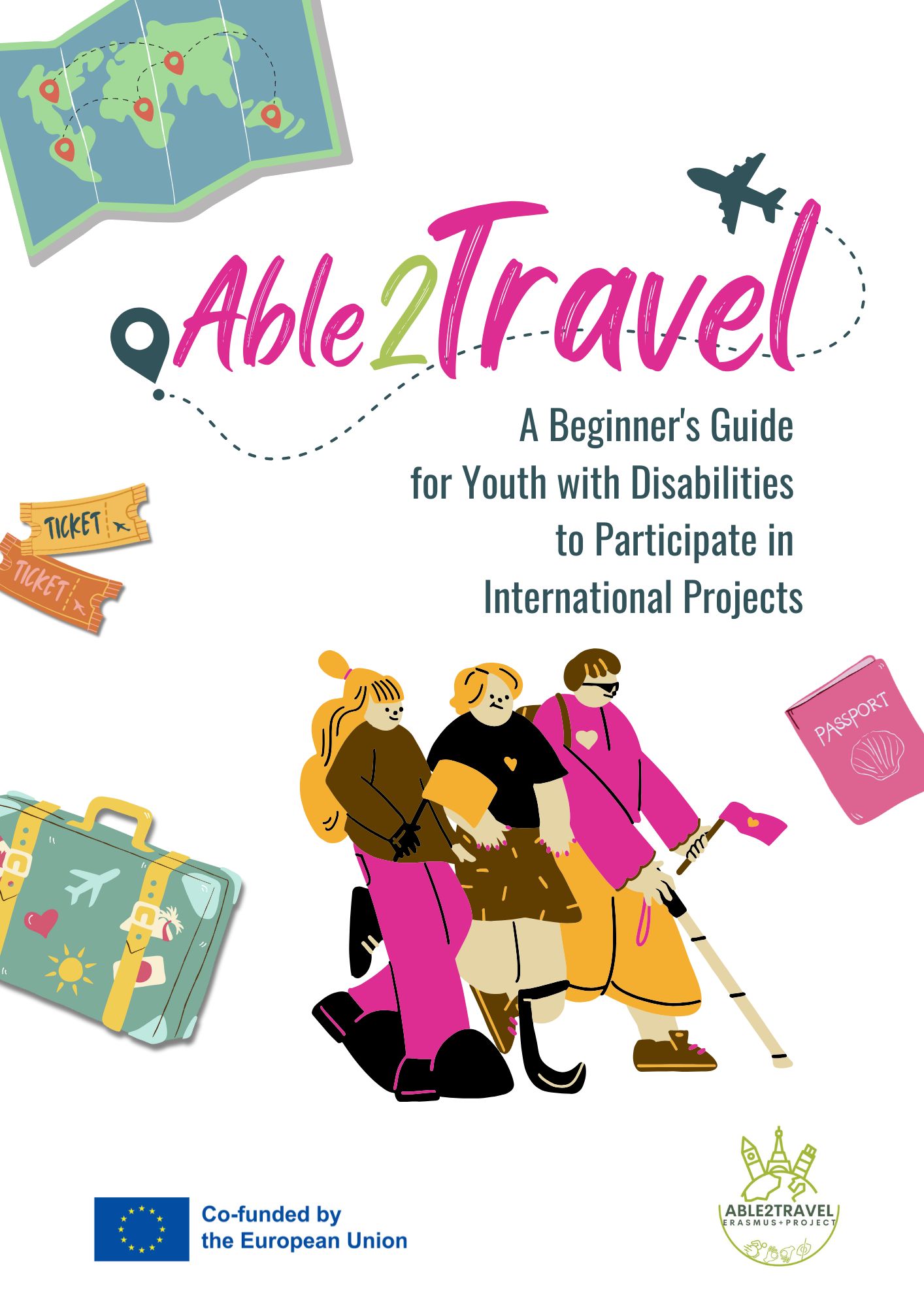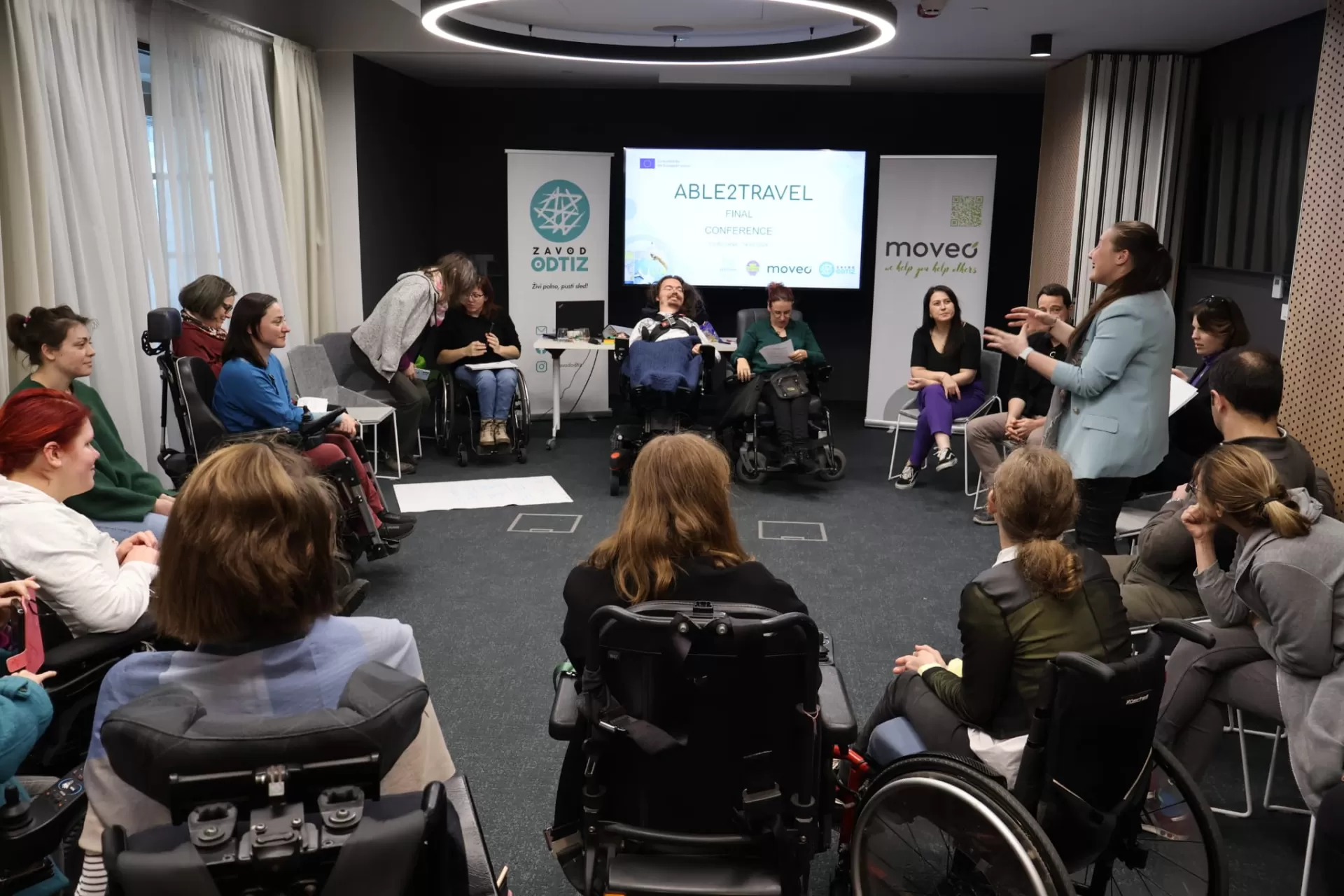
Able2Travel Project is an 18-month Erasmus+ KA2 Small Scale Partnership project in the youth field, prepared and implemented in partnership with our association TGBDER from Turkey, MOVEO from Austria and ODTIZ from Slovenia, funded by the Austrian National Agency. The project, which runs from 1 October 2022 to 1 April 2024, recognises young people with disabilities as people with many different skills, abilities and interests and as having an unquestionable right to access equal opportunities with their peers. The main objective behind the Able2Travel project was to encourage and equip young people with disabilities to take an active role in international mobility projects. We believe and insist that young people with disabilities should be seen as equal partners in mixed group projects where they will be provided with seamless access to information and their presence and contribution will be valued equally with their peers. The aim is to promote inclusion and diversity as natural, integral parts of these future projects and not as separate issues that need to be addressed independently.
The Able2Travel Guide is intended to be a practical, easy-to-understand and accessible resource for young people who would like to take part in international youth projects but do not have enough information on where to start, how to find these opportunities and how to prepare themselves.
The guide, which is available in English, German, Turkish and Slovenian, has been prepared by a team of disabled and non-disabled experts with extensive experience in working with disabled and non-disabled young people in international youth projects. It is designed as a starter pack that will tell young people ‘You can do it!, don't give up, keep going!’ to meet all these needs by eliminating existing barriers and imaginary barriers that exist only in our minds.
We are aware of the assumption that working with mixed disability groups in youth projects is challenging for both organisers and participants. But we also believe that a well-structured preparation and an inclusive approach from the very beginning can make things easier and more beneficial for everyone.
Our main principle in preparing the content of this guide has been the meaningful involvement of the target group in the whole process. In order to be effective in the development of this guide, we chose to hear the voice of young people because we believe that young people, with or without disabilities, are the experts on their own lives and experiences and should be actively involved at every stage (Nothing about us, without us!). They know what is most important to them and what affects them, and they also have incredible creativity and capacity to solve problems. Including the perspectives of a wider range of people has enabled us to have a deeper and broader understanding of the needs and interests of young people with disabilities.
Therefore, we organised focus group meetings with mixed disability groups in Austria, Slovenia and Turkey and the feedback we received from young participants with and without disabilities helped us to design the content of this guide and the way it is delivered.
The guide was launched at the final conference in Ljubljana on 14 March 2024. The final version of the guide was shared with the participants, including the focus group participants with disabilities who contributed to the preparation of the guide, and the next roadmap was discussed.

